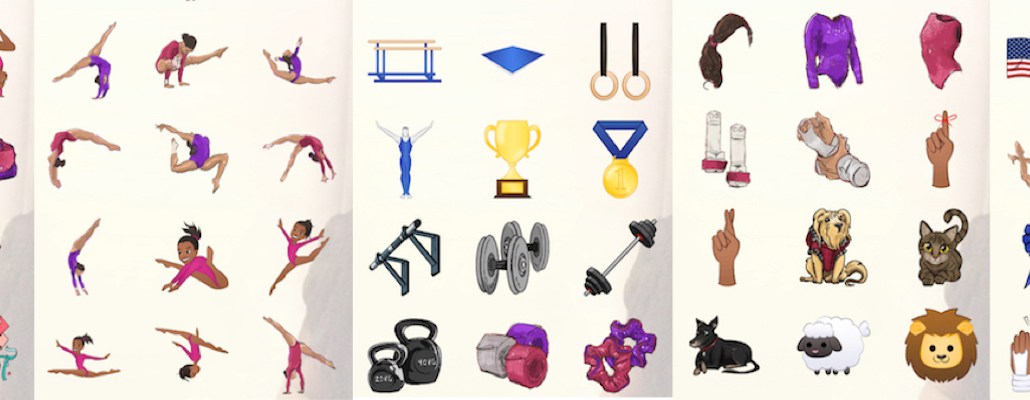Secure your place at the Digiday Media Buying Summit in Nashville, March 2-4

With the Rio Olympics just days away, athletes are already competing for dominance in a different arena: your phone’s screen.
There’s Michael Phelps’ PhelpsMoji app, released Thursday. For $0.99, users can use the 18-time gold medalist to express over 100 emotions, most related to pools, beards and trunks.
U.S. gymnasts Gabby Douglas and Simone Biles have GabbyMoji and Simoji, respectively, while Jamaican sprinter Usain Bolt has Boltmoji, a free app created by Puma.
It’s not hard to see why top athletes want to become emojis: Dedicated app production companies like Moji promise celebrities the ability to turn their millions of social followers into (paying) brand advocates with zero legwork. And the potential upside is huge.

The template here — as the names all hint — is Kimoji, Kim Kardashian’s emoji keyboard. On its release last December, it shot to No. 1 on iTunes’ paid downloads chart. Since then, it has remained in the top 50 highest-grossing entertainment apps in the U.S.
Others, like basketball star Steph Curry’s $1.99 app StephMoji, have also seen success. StephMoji also topped the U.S. iTunes store on its release. Though its rankings, like Kimoji, are slipping.
But the emoji keyboard is a revenue model that only works at scale. Stars need a big audience who like them enough to talk through them in their private messaging spaces.
“I’ve certainly seen emoji keyboards that seem like a vanity play,” said Eytan Oren, CEO of Block Party, which consults brands on messaging apps. For him, it’s a lot to ask of users to take over their phone. Only those with “hardcore” fans can really succeed in the graveyard of brand keyboards out there. (When was the last time you sent a Burger King emoji?)

And once you’ve got your keyboard in the hands of fans, there’s no guarantee it will actually work. “They’re not terribly hard to make, but the mechanics of getting stickers to work on every platform is tricky,” Oren said.
Many of these apps aren’t emojis in the true sense of the word. But actually stickers that need to be cut and pasted into each different messaging application. GabbyMoji, for example, requires users to select an image from its keyboard and manually paste it into the text field. On iTunes, a number of the athletes’ apps have complaints about the issue.
With app downloads at an all-time low, getting users to download a new set of emojis onto their phone isn’t easy. Especially when platforms like Twitter and Facebook Messenger are now moving to introduce custom branded emojis and stickers natively.

This week Twitter released Olympics-themed emojis that reflect the full range of sports and nationalities included at the event. People can use a country-specific three-letter hashtag to generate a flag from one of the 207 different competing nations, while terms like #Rio2016 and #Olympics will also bring up themed emojis for users.
There’s also NBC Universal’s official Rio keyboard. The individual athlete keyboards — with their highly specific individualized features –are limiting in this respect.
In the end, though, spontaneity and relevance are the keys to success with emojis, said Vanessa Keys, senior content strategist at Th_nk. “There’s definite risk of looking like you’re trying too hard to be ‘down with the kids.'”
More in Marketing

Thrive Market’s Amina Pasha believes brands that focus on trust will win in an AI-first world
Amina Pasha, CMO at Thrive Market, believes building trust can help brands differentiate themselves.

Despite flight to fame, celeb talent isn’t as sure a bet as CMOs think
Brands are leaning more heavily on celebrity talent in advertising. Marketers see guaranteed wins in working with big names, but there are hidden risks.

With AI backlash building, marketers reconsider their approach
With AI hype giving way to skepticism, advertisers are reassessing how the technology fits into their workflows and brand positioning.





